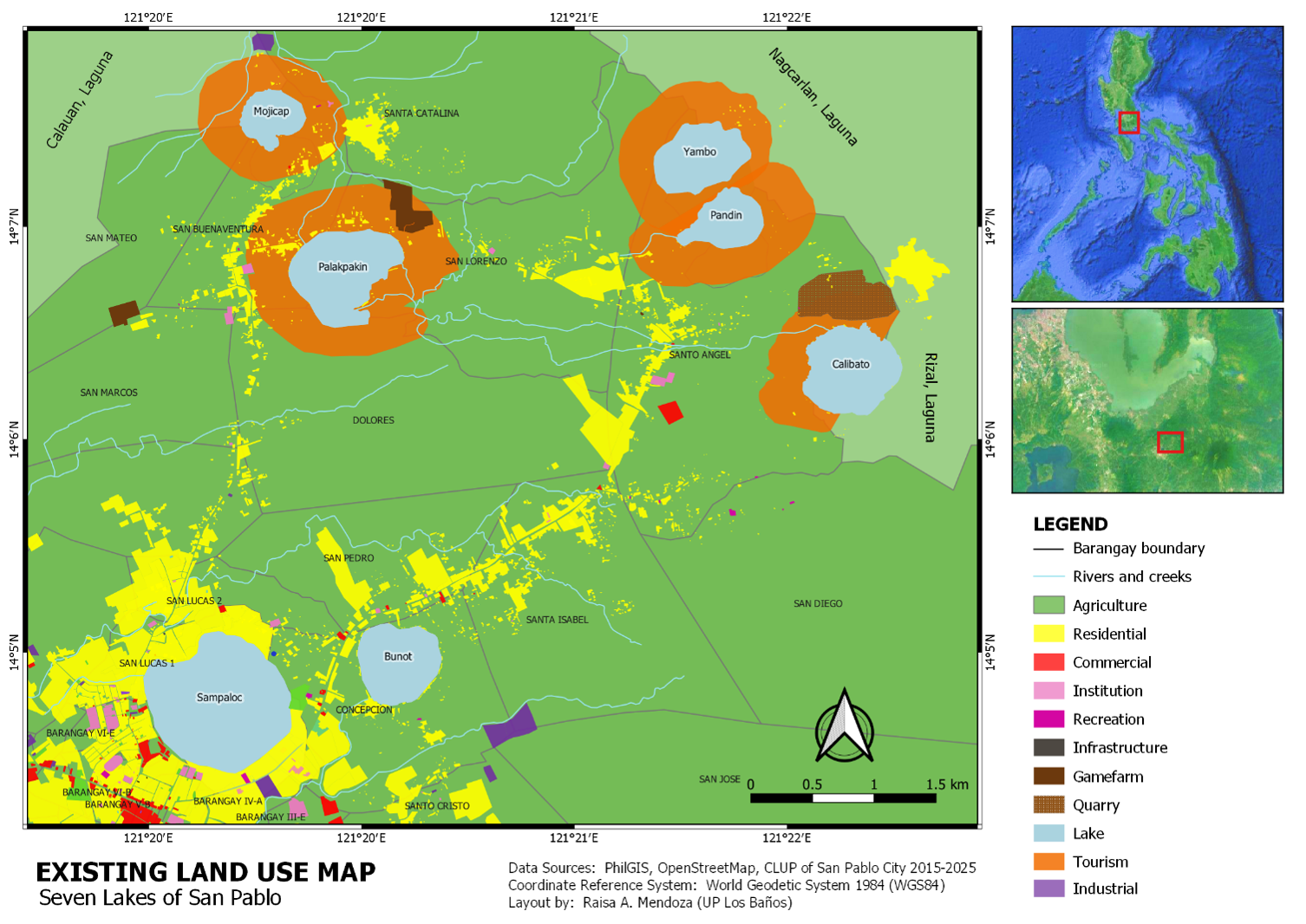VOLUME 14 NUMBER 1 (January to June 2021)

Philipp. Sci. Lett. 2021 14 (1) 158-179
available online: June 30, 2021
*Corresponding author
Email Address: vvpaller@up.edu.ph
Date received: September 03, 2020
Date revised: May 19, 2021
Date accepted: June 19, 2021
ARTICLE
The Seven Lakes of San Pablo: Assessment and Monitoring Strategies Toward Sustainable Lake Ecosystems
Vachel Gay V. Paller*1, Damasa Magcale-Macandog2, Emmanuel Ryan C. de Chavez1, Michelle Grace V. Paraso3, Maria Claret L. Tsuchiya1, Joseph G. Campang2, John Vincent R. Pleto2, Modesto Z. Bandal, Jr.1, Yves Christian L. Cabillon1, Amalia G. Elepaño3, Jeph Roxy M. Macaraig1, and Sedney S. Mendoza1
1Animal Biology Division, Institute of Biological Sciences,
College of Arts and Sciences, University of the Philippines,
Los Baños, Laguna, Philippines
2Environmental Biology Division,
Institute of Biological Sciences,
College of Arts and Sciences, University of the Philippines,
Los Baños, Laguna, Philippines
3Department of Basic Veterinary Sciences,
College of Veterinary Medicine,
University of the Philippines, Los Baños, Laguna, Philippines
College of Arts and Sciences, University of the Philippines,
Los Baños, Laguna, Philippines
2Environmental Biology Division,
Institute of Biological Sciences,
College of Arts and Sciences, University of the Philippines,
Los Baños, Laguna, Philippines
3Department of Basic Veterinary Sciences,
College of Veterinary Medicine,
University of the Philippines, Los Baños, Laguna, Philippines
The Seven Lakes of San Pablo City in Laguna, Philippines, provide ecosystem services such as freshwater supply, food, aquaculture, and tourism for the locals and tourists. Due to its vast natural resources, there has been an increase in aquaculture, agriculture, urban settlements, and tourism activities in the lakes in recent years. Realizing the effects of these anthropogenic activities, a comprehensive monitoring effort should be in place to formulate a more holistic approach to sustainable lake management. This review paper summarizes the past and current monitoring and research activities conducted in the Seven Lakes of San Pablo City. While the quarterly monitoring efforts of the lakes’ water quality conducted by the Laguna Lake Development Authority remain necessary, there is a need to employ a more holistic Ecosystem Approach which includes understanding the biological organization which encompasses the essential processes, functions and interactions among the organisms and their environment, and includes the analysis of the role of human society as an integral part of the ecosystem. This includes monitoring the spatial and temporal diversity patterns of native and introduced species, documenting the presence of endocrine disruptors in freshwater fishes currently cultivated in the lakes, identifying the potential risk factors of waterborne parasites contributing to contamination, and generating models for the lakes’ recreational and aquaculture carrying capacity in future monitoring and research efforts. Ecosystem Approach to lake management is proposed, integrating monitoring activities on biophysical dimensions with the socio-economic aspects and stakeholders’ participation to promote sustainable development, equity, and interlinked social-ecological resilience systems.
© 2024 SciEnggJ
Philippine-American Academy of Science and Engineering